new insights into the prevention and treatment of bulimia nervosa
new insights into the prevention and treatment of bulimia nervosa
new insights into the prevention and treatment of bulimia nervosa
You also want an ePaper? Increase the reach of your titles
YUMPU automatically turns print PDFs into web optimized ePapers that Google loves.
Personality <strong>and</strong> Coping in Groups With <strong>and</strong> Without Bulimic Behaviors<br />
may have contributed to minimize <strong>the</strong> statistical effect <strong>of</strong> this difference between <strong>the</strong> groups.<br />
Therefore studies with a larger number <strong>of</strong> subjects <strong>and</strong> using o<strong>the</strong>r instruments could<br />
demonstrate a significant difference, since this study uses a small sample size <strong>and</strong> a cross<br />
sectional data collection. However, beside that, data shows that bulimic subjects are less<br />
neurotic <strong>and</strong> more extroverted when compared with general population. That is <strong>of</strong><br />
interesting especially because, in some sense, it demonstrate a common sense that obese<br />
people are more extroverted than o<strong>the</strong>rs. That could be <strong>of</strong> interested for future studies.<br />
Never<strong>the</strong>less, <strong>the</strong> data seems to indicate that, although this difference was not significant<br />
between both groups, <strong>the</strong> influence <strong>of</strong> personality traits on <strong>the</strong> perception <strong>of</strong> <strong>the</strong> problem as<br />
well as on ways <strong>of</strong> coping with problems occurs differentially. Thus, although no significant<br />
difference was observed between personality traits <strong>of</strong> both groups, this small difference<br />
seems to produce differential relations in perceptions <strong>and</strong> behaviors <strong>of</strong> individuals when<br />
dealing with <strong>the</strong>ir problems. The data is discussed in <strong>the</strong> light <strong>of</strong> coping <strong>and</strong> personality<br />
<strong>the</strong>ories. We also discuss <strong>the</strong> need for psychological interventions based on <strong>the</strong> development<br />
<strong>of</strong> coping skills <strong>and</strong> geared towards <strong>the</strong> care <strong>of</strong> patients with <strong>bulimia</strong>.<br />
We also discuss <strong>the</strong> need for psychological interventions directed towards <strong>the</strong> care <strong>of</strong><br />
patients with <strong>bulimia</strong> that direct <strong>the</strong>ir aims to <strong>the</strong> development <strong>of</strong> coping abilities, which<br />
will widen <strong>the</strong>ir behavioral repertoire regarding ways <strong>of</strong> facing problems, <strong>and</strong> which may<br />
lead to changes in <strong>the</strong> ways <strong>of</strong> perceiving <strong>and</strong> relating to <strong>the</strong> environment, as well as higher<br />
assertiveness in order to develop a stronger emotional self-control <strong>and</strong> self-confidence.<br />
5. References<br />
Binford, R. B. (2003). Implementation <strong>and</strong> predictive capacity <strong>of</strong> CBT Coping in individuals<br />
with <strong>bulimia</strong> <strong>nervosa</strong>. Tese de doutorado não publicada, Universidade de<br />
Minnesota, Estados Unidos.<br />
Blumenthal, J. A., Babyak, M. A., Carney, R. M., Keefe, F. J., Davis, R. D., LaCaille,<br />
R., Parekh, P. I., Freedl<strong>and</strong>, K. E., Trulock, E., & Palmer, S. M. (2006). Telephonebased<br />
coping skills training for patients awaiting lung transplantation: The<br />
INSPIRE study. Journal <strong>of</strong> Consulting <strong>and</strong> Clinical Psychology, ISSN 0022-006X, 74,<br />
535-544.<br />
Castilho, Simone Mancini, Gonçalves, Simone Brunhani, Leite, Marcos da Costa, Segal,<br />
Adriano & Cordás, Táki Athanássios (1995). Bulimia <strong>nervosa</strong> III: disorders <strong>and</strong><br />
personality evaluation in patients with <strong>bulimia</strong> <strong>nervosa</strong>. Jornal Brasileiro de<br />
Psiquiatria, ISSN 0047-2085, 44, 32-37.<br />
Claudino, A. M., & Zanella, M. T. (2005). Transtornos Alimentares e Obesidade. Barueri:<br />
Manole, ISBN: 8520422675.<br />
Compas, B. E. (1987). Coping With Stress During Childhood <strong>and</strong> Adolescence. Psychological<br />
Bulletin, ISSN 1641-7844, 101, 393-403.<br />
Connor-Smith, J. K., & Flachsbart, C. (2007). Relations Between Personality <strong>and</strong> Coping: A<br />
Meta-Analysis. Journal <strong>of</strong> Personality <strong>and</strong> Social Psychology, ISSN 0022-3514, 93,<br />
1080-1107.<br />
Cordás, T. A., & Neves, J. E. P. (2000). Escalas de avaliação de transtornos alimentares. Em<br />
C. Gorenstein, L. H. S. G. Andrade & A. W. Zuardi (Orgs.), Escalas de avaliação em<br />
187







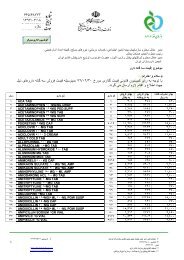
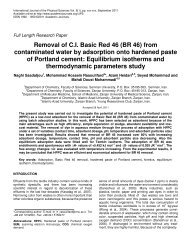

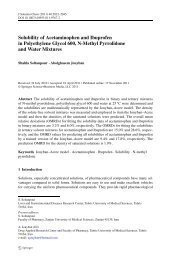
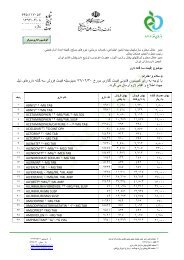

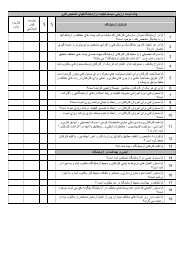
![focuspdca.ppt [Compatibility Mode]](https://img.yumpu.com/22859457/1/190x146/focuspdcappt-compatibility-mode.jpg?quality=85)


